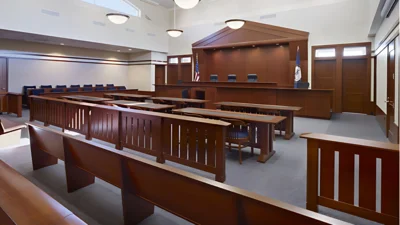Maryland Chamber of Commerce issued the following announcement on July 17.
The Maryland Chamber of Commerce brings together stakeholders in the telecommunications sector to discuss public policy concerns and address them as a unit instead of individual interests. In the 2018 legislative session, the Maryland Chamber lobbied on five bills (including cross-files) that could have major implications in the State of Maryland. The Telecommunications Advisory Group meets for quarterly meetings and came together on July 9th to address the legislation MDCC has worked on to see where we go with it in the future.
Small cells/5G
Small cells are a top concern in Maryland presently, with the failure to pass legislation during the 2018 legislative session that would prohibit local government from intervening through exclusive agreements and imposing rates and fees for telecom carriers and much more. HB 1767/SB 1188 would have authorized wireless providers to collocate wireless facilities and poles in certain regions across the state to install innovative new infrastructure. Known as small cells, this technology speeds up and enhances the reliability of 5G broadband coverage.
The MDCC supported these bills because it would have strengthened the state’s technology infrastructure, which would provide better services and accesses across the state, including to more rural communities in western, southern and eastern Maryland.
The passage of this legislation would allow telecom companies to have more say in the way small cells operate in their network. However, with the failed passage, mobile operators don’t have as much free reign to deploy small cells as they wish. The Maryland Association of Counties doesn’t like a one size fits all approach and would like more flexibility for local jurisdictions to be able to provide what best suits respective regions in Maryland.
Internet service provider mandates (“Net Neutrality”)
HB 1654 would have prohibited a mass-market retail service that provides the capability to transmit and receive data from using, disclosing, selling or providing access to customer’s personal information without their consent. Additionally, this bill would have prohibited Internet Service Providers (ISPs) from being awarded state grants or contracts to procure services unless they consent to not block certain content applications, services and impair or degrade certain internet traffic, among other provisions. Essentially, this bill would restore certain regulations that were rolled back by the Federal Communications Commission (FCC), albeit on a state level.
MDCC opposed this bill because we were concerned that attempts to regulate the internet on a state-by-state basis would create a patchwork of laws and regulations that would harm businesses’ ability to effectively operate across state lines. This would heavily discourage investment in infrastructure and would harm the consumers and businesses who rely on the internet and telecommunications.
Net neutrality has failed to pass in the past two legislative sessions, however, MDCC sees it potentially passing in the 2019 legislative session.
Rural internet, broadband, wireless and cellular services access
This legislative session, HB 243/SB 968, as amended, extended the Task Force on Rural Internet, Broadband, Wireless, and Cellular Service by an additional year (to 2019), and add additional responsibilities under its purview relative to education and “last-mile broadband cost.” The area of examination of the task force is expanded to identify unserved and underserved areas in all of Maryland (not just the previously-identified areas in western Maryland, southern Maryland, the eastern shore and Frederick, Carroll and Harford counties), in conjunction with local governments and internet service providers too.
MDCC supported this legislation, noting that the expansion of access to broadband and other internet services to all regions in the state plays an important role in economic development and community growth. Businesses already have enough barriers to overcome to become operational – cellular service and wireless connections should not be one of them.
MDCC is trying to get counties across the State of Maryland involved in this legislative issue to see what the areas of need are in different parts of the state.
Original source can be found here.

Source: Maryland Chamber of Commerce





 Alerts Sign-up
Alerts Sign-up